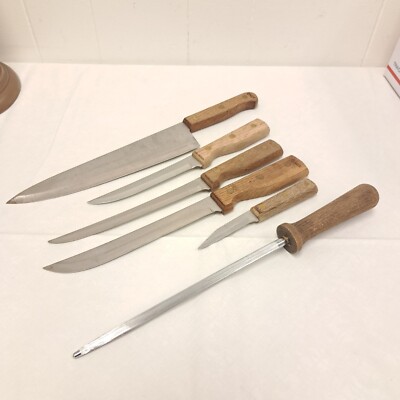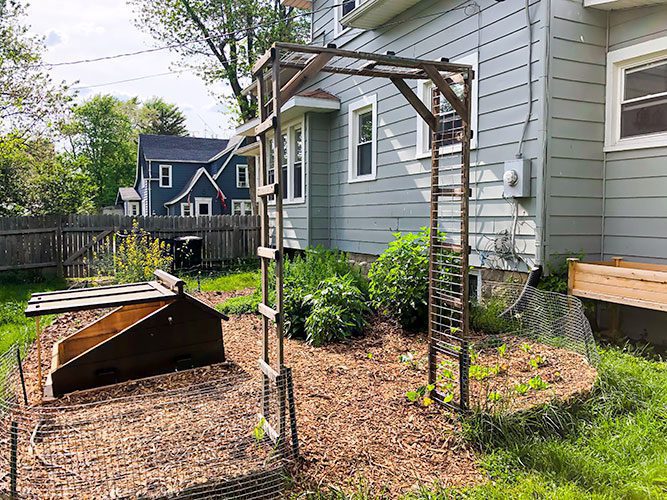
Thrifty Homesteading: Your Guide to Killer Garage Sale Finds
Welcome to Better Homes and Harvests! Today, we're diving headfirst into a topic that resonates with every frugal homesteader: intentional shopping, specifically the art of conquering garage sales. Let's face it, building a self-sufficient homestead, brimming with garden tools, canning equipment, and maybe even the occasional antique farm implement, can feel like emptying your bank account one tool at a time. But what if I told you there's a way to equip your homestead without breaking the bank, while simultaneously contributing to a more sustainable lifestyle? The answer, my friends, lies in the thrill of the hunt – the satisfying click of finding a practically new garden hoe for five bucks, the victorious grin after haggling for a vintage canning pot, and the simple joy of giving discarded treasures a new life on your homestead.
That’s right, we’re talking garage sales and flea markets! These weekend havens of forgotten treasures offer a goldmine of homesteading essentials, often at prices that are almost too good to be true. Buying secondhand isn't just about saving money; it's about reducing waste, giving items a second chance, and often finding unique, high-quality tools that simply aren't made anymore. It's about embracing a lifestyle of resourcefulness and sustainability.
In this post, we'll unveil the secrets to maximizing your garage sale homesteading success, covering everything from pre-sale scouting to post-purchase restoration. We’ll walk you through four key strategies to find incredible deals and useful items:
- Pre-Sale Recon: Scouting Like a Pro - How to find the best sales near you.
- Negotiation Ninja: Mastering the Art of the Deal - Learning to haggle like a pro.
- Inspect Before You Invest: Ensuring Quality & Safety - What to look for (and avoid) when purchasing used items.
- From Rust to Riches: Cleaning, Repairing, and Repurposing - How to give old treasures new life.
So, grab your coffee, buckle up, and let's embark on a thrifty homesteading adventure!

Pictured is an overflowing collection of tools and homesteading supplies found at garage sales, highlighting the potential for finding treasures at discounted prices.
Section 1: Pre-Sale Recon: Scouting Like a Pro
The first step to garage sale glory is knowing where to look. Randomly driving around on a Saturday morning might yield some results, but a strategic approach will dramatically increase your chances of scoring valuable homesteading loot.
Online Listings: Your best friend in the pre-sale game is the internet. Websites like Craigslist, Facebook Marketplace, and even local community bulletin boards are treasure troves of garage sale listings. Use specific keywords like "garden tools," "canning supplies," "farm equipment," "woodworking," or "vintage" to narrow your search and filter out irrelevant listings.
Community Bulletin Boards: Don't underestimate the power of the physical world! Check out local grocery stores, libraries, and community centers for posted flyers and announcements.
Newspaper Ads: While less common these days, some communities still advertise garage sales in the local newspaper.
Strategic Routing: Once you've identified a few promising sales, plan your route strategically. Group sales in the same neighborhood or area to minimize travel time and maximize your efficiency. Consider the distance between sales and the time each one is likely to open.
Target Rich Environments: Look for sales in areas known for older homes, larger properties, or communities with a strong gardening or farming tradition. These locations are more likely to yield homesteading-related items.
Estate Sales: Keep an eye out for estate sales, which often feature higher-quality, potentially older tools and equipment that have been well-maintained.

A smartphone screen displays a map app with pins marking the locations of multiple garage sales, emphasizing the importance of pre-planning and strategic routing.
Key Takeaway: Smart pre-sale planning significantly increases your chances of finding valuable items. Spend a little time researching and strategizing, and you'll be rewarded with a treasure trove of homesteading supplies.
Section 2: Negotiation Ninja: Mastering the Art of the Deal
Once you've found the perfect garage sale, it's time to put your negotiation skills to the test. Haggling can be intimidating, but with a few simple strategies, you can significantly lower the price of your desired items.
- Arrive Early (but not too early): Arriving early gives you the first pick of the selection. However, sellers are often less willing to negotiate early in the day, as they're hoping to get top dollar.
- Time is Your Friend: Consider attending sales later in the day, especially on Sunday afternoons. Sellers are often more motivated to clear out their inventory and are more willing to accept lower offers.
- The Power of Politeness: Always be polite and respectful. Building rapport with the seller can go a long way. A friendly smile and a genuine interest in their items can often lead to better deals.
- The Bundle Discount: If you're interested in multiple items, bundle them together and ask for a discount. For example, "I'll take these three tools if you give me a discount on the whole lot."
- Highlight Imperfections (Tactfully): Gently point out any minor flaws or needed repairs as justification for a lower price. For example, "I noticed this shovel has a bit of rust. Would you be willing to come down a bit on the price?"
- Know Your Budget: Before you even start browsing, set a budget for each item and stick to it. Be prepared to walk away if the price isn't right. There will always be other sales!
- Cash is King: Offering to pay in cash can give you additional bargaining leverage. Sellers often prefer cash to avoid credit card fees.
Key Takeaway: Negotiation is a skill that can save you significant money. Confidence and respectful communication are key. Don't be afraid to ask for a lower price – the worst they can say is no!
Section 3: Inspect Before You Invest: Ensuring Quality & Safety
Before handing over your hard-earned cash, it's crucial to thoroughly inspect each item to ensure it's in good working condition and doesn't pose any safety risks.
- Tools: Check for rust, cracks, loose handles, and overall functionality. Make sure the blades are sharp and the moving parts move smoothly. Consider the cost of repairs when negotiating the price.
- Canning Supplies: Inspect jars for chips and cracks, especially around the rim. Verify that the lids are in good condition and still seal properly. Damaged jars can be a safety hazard during the canning process.
- Kitchen Equipment: Check for functionality, cleanliness, and potential safety hazards like frayed cords or damaged heating elements. Test electrical items if possible.
- Vintage Items: Assess the structural integrity of vintage items and be aware of potential lead paint concerns.

A person closely examines a hand tool at a garage sale, carefully checking for signs of damage or wear and tear, underscoring the necessity of a thorough inspection before making a purchase.
Key Takeaway: A thorough inspection prevents costly mistakes and ensures you're buying quality items. Don't be afraid to ask questions and test items before you commit to a purchase.
Section 4: From Rust to Riches: Cleaning, Repairing, and Repurposing
One of the most rewarding aspects of garage sale homesteading is the ability to transform discarded treasures into valuable assets for your homestead. With a little elbow grease and creativity, you can give old items a new lease on life.
- Essential Cleaning Supplies: Gather a collection of essential cleaning supplies, including soap, water, degreaser, rust remover, and a wire brush.
- Simple Repair Techniques: Learn basic repair techniques like sharpening blades, replacing handles, and tightening screws. These simple fixes can often restore a tool to its former glory.
- Repurposing Ideas: Get creative with repurposing!
- Old Tires: Transform old tires into colorful garden planters.
- Pallets: Use pallets to build compost bins, chicken coops, or raised garden beds.
- Vintage Containers: Turn vintage containers into stylish storage solutions for your homestead.
Here's where a picture is worth a thousand words! Take a look at this before and after of a rusty old hand tiller I found for $5:
BEFORE:
AFTER:
[Link to original post]
(Imagine two images displayed here, with the first showing a heavily rusted hand tiller found at a garage sale, and the second showing the same tiller after cleaning, with the rust removed and the metal shining.)
I spent an afternoon cleaning and oiling it, and now it's a valuable tool in my garden.

A wooden ladder is repurposed as a trellis in a garden setting, illustrating how garage sale finds can be creatively transformed into functional and aesthetically pleasing homesteading solutions.
Key Takeaway: A little elbow grease and creativity can transform secondhand finds into valuable assets for your homestead. Embrace the challenge of restoring and repurposing, and you'll be amazed at what you can achieve.
When is it worth it to buy new?
Sometimes, despite the appeal of a bargain, buying new is the right choice. This is especially true for safety equipment like chainsaw helmets or anything that involves food safety like new canning lids. Consider the long-term value, warranty, and safety factors before committing to a used item.
Conclusion:
Garage sale homesteading is more than just a way to save money; it's a lifestyle choice that embraces resourcefulness, sustainability, and community connection. By following the strategies outlined in this post – planning, negotiating, inspecting, and restoring – you can equip your homestead with high-quality tools and supplies without breaking the bank.
So, get out there, explore your local garage sales, and discover the thrill of the hunt!
Call to Action:
What are your best garage sale homesteading finds? Share your experiences and favorite tips in the comments below!
What's the best deal you've ever found at a garage sale? Let's hear your stories!
Want more thrifty homesteading tips and resources? Subscribe to the Better Homes and Harvests newsletter!
If you have tools that you no longer need, consider listing them in a local community group, so that you can offer them to a budding homesteader.